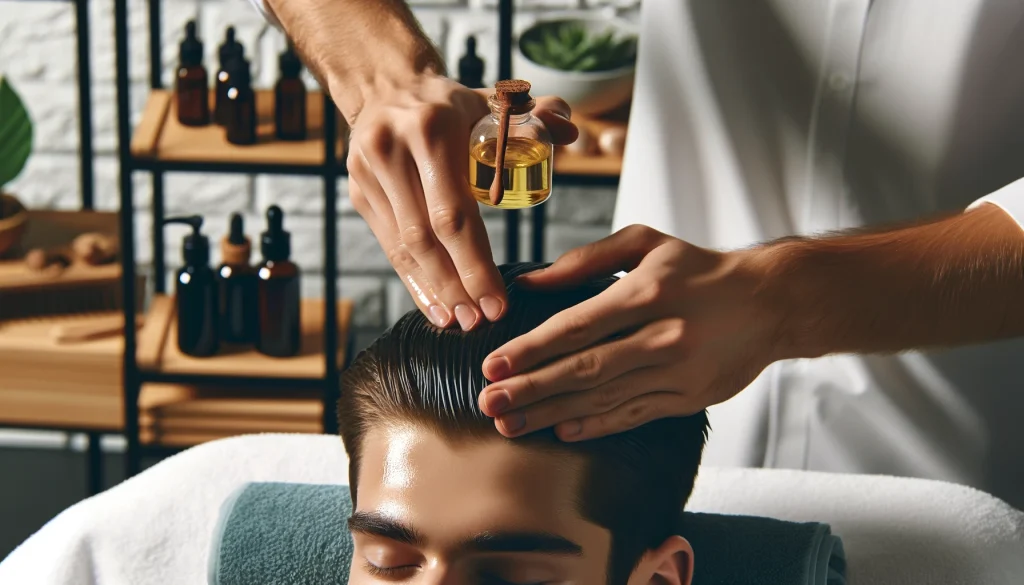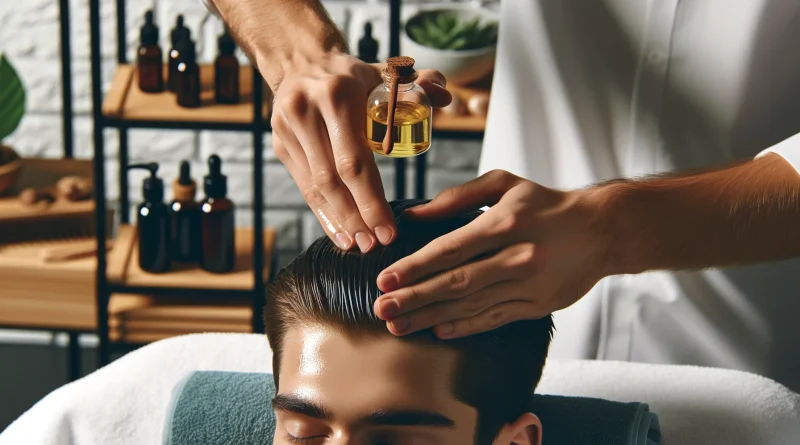Does Scalp Treatment Help Hair Growth?
Introduction
When it comes to achieving luscious, healthy hair, the condition of your scalp plays a pivotal role. Scalp treatments, often overshadowed by other hair care routines, are essential for maintaining scalp health and potentially enhancing hair growth. But does Scalp Treatment Help Hair Growth? Let’s dive into the nitty-gritty of scalp treatments and their impact on hair growth.
Understanding Hair Growth
Hair Growth Cycle
To understand how scalp treatments can influence hair growth, it’s important to first grasp the basics of the hair growth cycle. Hair grows in three phases: anagen (growth), catagen (transition), and telogen (rest). The anagen phase is where active hair growth occurs, lasting anywhere from 2 to 7 years.
Factors Affecting Hair Growth
Various factors can influence hair growth, including genetics, diet, hormonal changes, and overall health. Stress and environmental factors can also play a role in hair loss and growth patterns.
What Are Scalp Treatments?

Definition and Types
Scalp treatments are specialized therapies aimed at improving the condition of the scalp. These treatments can range from medicated shampoos and conditioners to more intensive salon or medical procedures.
Common Ingredients
Ingredients commonly found in scalp treatments include essential oils, salicylic acid, ketoconazole, and plant extracts. Each ingredient serves a specific purpose, such as reducing inflammation, exfoliating dead skin cells, or fighting fungal infections.
Benefits of Scalp Treatments
Improving Scalp Health
A healthy scalp is the foundation for healthy hair. Scalp treatments can help maintain a clean and balanced scalp environment, free from excess oil, dandruff, and build-up.
Reducing Dandruff and Itchiness
Dandruff and itchiness are common scalp issues that can hinder hair growth. Treatments containing antifungal or exfoliating agents can effectively reduce these problems, promoting a healthier scalp.
Enhancing Hair Growth
By improving scalp health, scalp treatments can indirectly promote hair growth. A clean, well-nourished scalp provides a better environment for hair follicles to thrive.
How Scalp Treatments Work
Stimulating Blood Circulation
Massaging the scalp during treatments can stimulate blood circulation, which in turn delivers more oxygen and nutrients to the hair follicles, promoting healthier hair growth.
Providing Essential Nutrients
Many scalp treatments are rich in vitamins and minerals that nourish the scalp and hair follicles, supporting the growth of strong, healthy hair.
Balancing Scalp Oils
Excess oil production or dryness can disrupt the scalp’s natural balance. Scalp treatments can help regulate sebum production, maintaining optimal scalp health.
Types of Scalp Treatments
Exfoliating Treatments
Exfoliating treatments remove dead skin cells and build-up from the scalp, allowing for better absorption of nutrients and reducing the risk of clogged hair follicles.
Hydrating Treatments
Hydrating treatments focus on moisturizing the scalp, which is especially beneficial for those with dry or flaky scalps.
Antifungal Treatments
Antifungal treatments are designed to combat fungal infections that can lead to dandruff and other scalp issues.
DIY Scalp Treatments
Natural Ingredients
For those who prefer natural remedies, there are plenty of DIY scalp treatments that use ingredients like aloe vera, tea tree oil, and apple cider vinegar.
Easy Recipes to Try at Home
Creating your own scalp treatments at home can be both fun and effective. For example, a simple mix of coconut oil and essential oils can provide deep hydration and nourishment.
Professional Scalp Treatments
Salon Treatments
Professional scalp treatments at salons often include deep cleansing, exfoliation, and intensive hydration, performed by trained experts.
Medical Treatments
For more serious scalp conditions, medical treatments such as corticosteroid injections or laser therapy may be recommended by a dermatologist.
Choosing the Right Scalp Treatment
Assessing Your Scalp Condition
Before choosing a scalp treatment, it’s important to assess your scalp’s condition. Is it oily, dry, or prone to dandruff? Understanding your scalp type will help you select the most appropriate treatment.
Consulting with Professionals
If you’re unsure about which treatment is right for you, consulting with a dermatologist or a trichologist can provide valuable insights and personalized recommendations.
How Often to Use Scalp Treatments
Frequency Recommendations
The frequency of scalp treatments depends on the type of treatment and your scalp condition. Generally, once a week is a good starting point, but some treatments may require more or less frequent application.
Signs You Need a Treatment
Signs that you might benefit from a scalp treatment include persistent dandruff, itching, excessive oiliness, or noticeable hair thinning.
Potential Side Effects
Allergic Reactions
Some scalp treatments contain ingredients that may cause allergic reactions in sensitive individuals. Always perform a patch test before using a new product.
Overuse and Its Consequences
Overusing scalp treatments can lead to scalp irritation or imbalance. It’s important to follow recommended usage guidelines to avoid potential issues.
Success Stories and Testimonials
Real-life Examples
Many people have experienced positive results from regular scalp treatments. Stories of reduced dandruff, improved hair texture, and enhanced hair growth are common.
Expert Opinions
Experts in dermatology and trichology often advocate for scalp treatments as an effective way to support overall scalp health and hair growth.
FAQs About Scalp Treatments
Common Concerns and Misconceptions
- Can scalp treatments cause hair loss?
No, scalp treatments are generally designed to improve scalp health and should not cause hair loss if used correctly. - Are scalp treatments safe for color-treated hair?
Yes, many scalp treatments are safe for color-treated hair, but it’s best to check the product label or consult with a professional. - How long does it take to see results from scalp treatments?
Results can vary, but most people notice improvements in scalp health within a few weeks of regular use. - Can I use scalp treatments if I have sensitive skin?
Yes, there are scalp treatments formulated for sensitive skin. Look for products with gentle, soothing ingredients. - Do I need to wash my hair before applying a scalp treatment?
It’s usually best to apply scalp treatments to clean hair and scalp for maximum effectiveness.
Conclusion
Scalp treatments can be a game-changer in your hair care routine. By addressing various scalp issues and promoting a healthier scalp environment, these treatments can enhance hair growth and overall hair health. Whether you choose DIY methods or professional treatments, consistency and proper usage are key to reaping the benefits.
FAQs
- What is the best scalp treatment for dandruff?
Look for treatments containing antifungal ingredients like ketoconazole or tea tree oil to effectively combat dandruff. - Can scalp treatments help with hair thinning?
Yes, scalp treatments that improve blood circulation and provide essential nutrients can support hair growth and reduce thinning. - How often should I exfoliate my scalp?
Exfoliating your scalp once a week is generally sufficient to remove build-up and promote a healthy scalp. - Are there any natural scalp treatments for hair growth?
Yes, natural ingredients like aloe vera, castor oil, and peppermint oil can promote hair growth and improve scalp health. - Can I use multiple scalp treatments at once?
It’s best to use one scalp treatment at a time to avoid overloading your scalp with different ingredients. Stick to a consistent routine for the best results.

